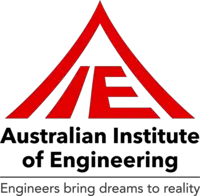
How do I become a welder?
Certificate III in Engineering - Fabrication Trade (Welding)
- There are no mandated entry requirements.
 Blue Dog Training
Blue Dog Training
Certificate IV in Gas Supply Industry Operations
- There are no mandated entry requirements.
 Kallibr Training
Kallibr Training
Certificate IV in Engineering
- There are no mandated entry requirements.








Certificate III in Engineering - Fabrication Trade
- There are no mandated entry requirements.








Certificate III in Engineering - Mechanical Trade
- There are no mandated entry requirements.








Diploma of Engineering – Advanced Trade
- There are no mandated entry requirements.





Certificate III in Gas Supply Industry Operations
- There are no mandated entry requirements.
 Kallibr Training
Kallibr Training
Certificate II in Engineering - Production
- There are no mandated entry requirements.
 Axial Training
Axial Training
Certificate II in Engineering (Heavy Fabrication)
- There are no mandated entry requirements.


Related occupations
Apprentice Engineer
An Apprentice Engineer trains in creating and maintaining machinery parts, uses various tools, and must follow instructions, work in teams, and be adaptable.
Engineering Tradesperson
An Engineering Tradesperson creates and maintains parts for construction projects, using various tools and machinery while managing multiple projects effectively.
Blacksmith
A Blacksmith shapes metal using heat, creating new pieces or repairing existing ones with tools and machinery, while ensuring safety and detail.
Boilermaker
A Boilermaker fabricates and repairs metal parts using technical drawings, employing skills in welding, bolting, and riveting while ensuring safety.
TIG Welder
A TIG Welder uses gas tungsten arc welding to join metal, often interpreting technical drawings and working in diverse industries like construction.
Metal Worker
A Metal Worker fabricates parts from metals like steel and aluminium, cutting, shaping, assembling, and installing them according to specifications.
Welding Instructor
A Welding Instructor teaches welding techniques, assesses student skills, and provides feedback in vocational settings, requiring strong communication and organisation.
Sheet Metal Worker
A Sheet Metal Worker cuts, shapes, and designs metal components using hand tools or machinery, requiring strong technical skills and attention to detail
Fabricator
A Fabricator constructs and repairs metal parts using various techniques, requiring strong technical skills and adherence to safety guidelines.
Common questions
How much does a Welder earn?
In Australia, a full time Welder generally earns $1,400 per week ($72,800 annual salary) before tax. This is a median figure for full-time employees and should be considered a guide only. As you gain more experience you can expect a potentially higher salary than people who are new to the industry.
What are the job opportunities for a Welder?
The number of people employed in this industry has fallen slightly in recent years. There are currently 69,600 people working as a Welder in Australia compared to 75,800 five years ago. Welders may find work across all regions of Australia.
Source: Australian Government Labour Market Insights
How do I become a Welder?
To become a Welder, consider the Certificate II in Engineering – Production Technology. You’ll learn about different types of welding including oxy, metal arc and tungsten arc, as well as soldering, metal fabrication and cutting techniques. You could also enrol in a Certificate III in Engineering – Fabrication Trade, a Certificate III in Engineering – Mechanical Trade, a Certificate IV in Engineering or a Certificate IV in Engineering (Welding).
Further reading


Most popular manufacturing courses
19th July 2022)


